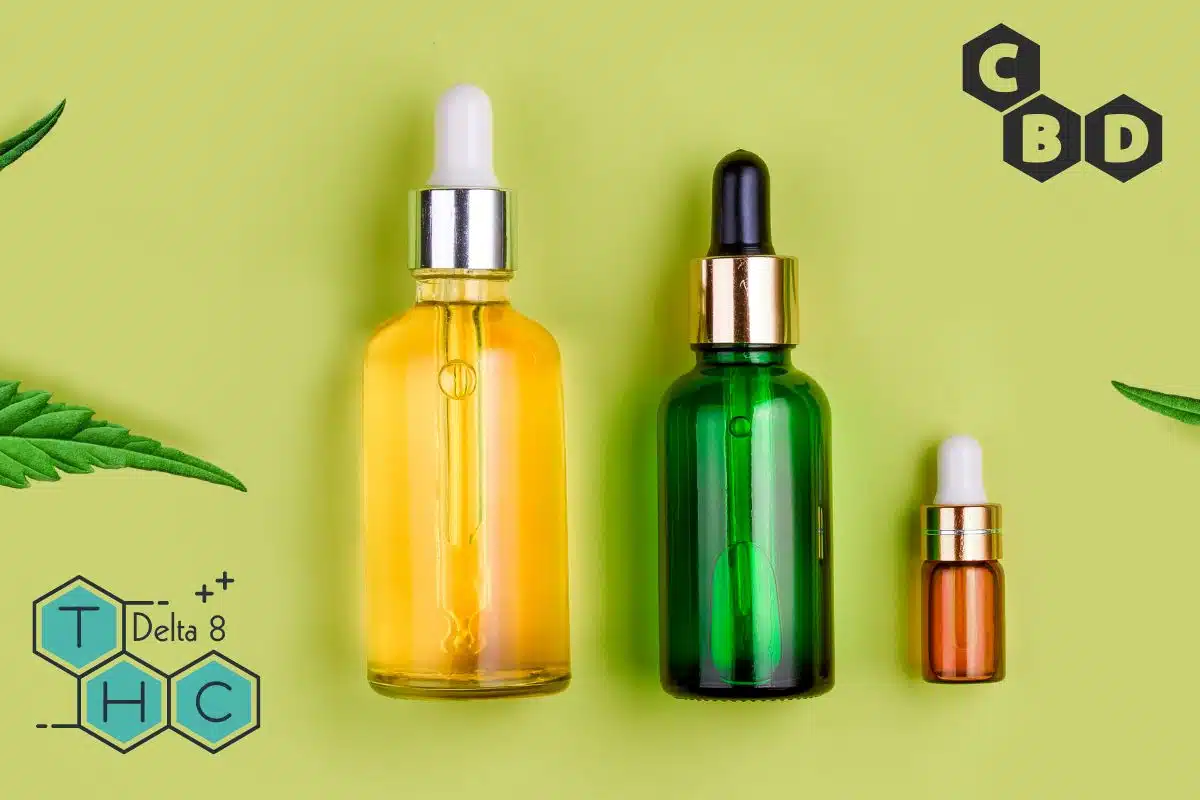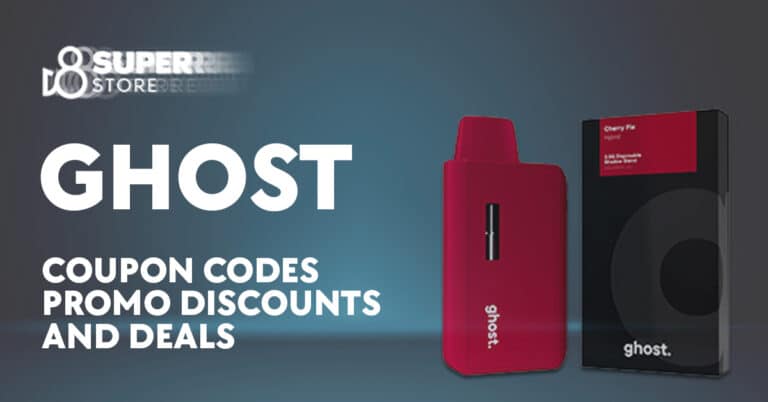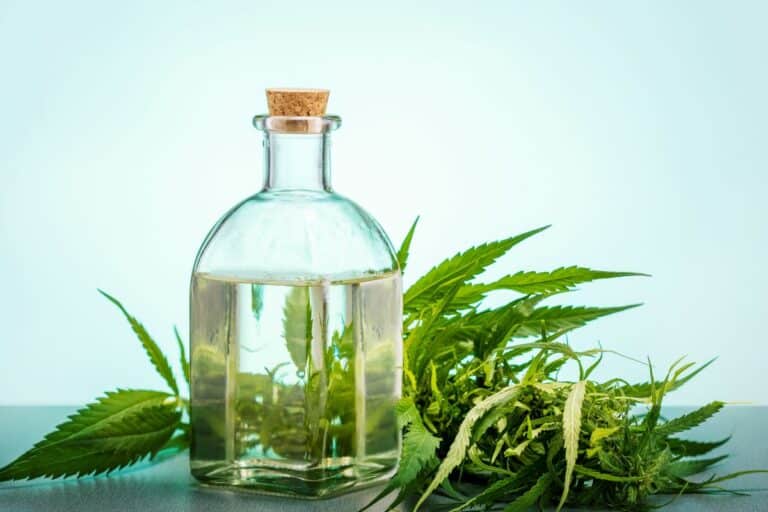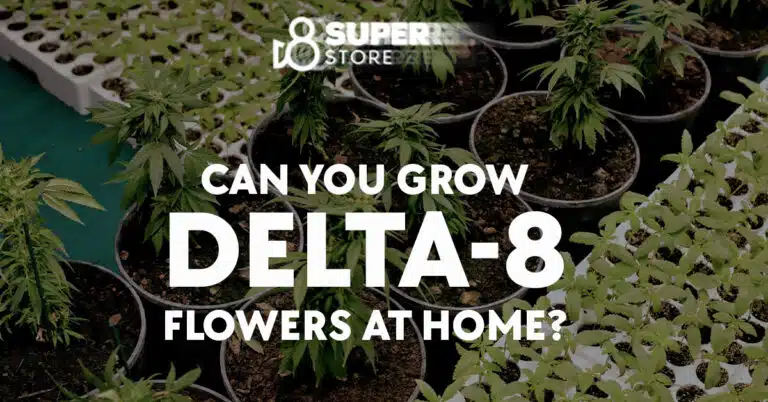CBD vs Delta 8: Unraveling the Key Differences and Benefits
Cannabidiol (CBD) and Delta-8 tetrahydrocannabinol (Delta-8 THC) both come from the same plant – cannabis. Yet, they’re like night and day! Even though they share the same roots, they bring their own special features, effects, and rules to the table. With the buzz around cannabis stuff getting louder, getting to know what sets these two apart is key to picking the best fit for you and enjoying the benefits.
CBD, a non-psychoactive cannabinoid, is derived from hemp and is well-known for its potential therapeutic benefits, such as reducing anxiety and inflammation. On the other hand, Delta-8 THC, a psychoactive compound, is less potent than the widely known Delta-9 THC but still produces some psychoactive effects. Consumers have increasingly turned to Delta-8 THC for its milder effects compared to Delta-9 THC.
Key Takeaways
- CBD is non-psychoactive, while Delta-8 THC produces mild psychoactive effects.
- Both cannabinoids have potential therapeutic benefits, but may differ in their applications and side effects.
- The legal status and regulation of CBD and Delta-8 THC can vary depending on location.
CBD vs Delta-8: Definitions and Origins
CBD: Cannabidiol
Cannabidiol (CBD) is a naturally occurring compound found in the Cannabis sativa plant. CBD is one of over 100 cannabinoids in the plant, and it is non-intoxicating, meaning it does not produce the psychoactive effects typically associated with marijuana use. CBD is most commonly extracted from hemp, a variety of Cannabis sativa that is bred to have low THC levels (the intoxicating cannabinoid).
CBD has gained popularity for its potential therapeutic benefits, which may include relief from pain, anxiety, and inflammation. It is available in various forms, such as oils, capsules, creams, and edibles. The path to CBD’s legality was paved by the 2018 Farm Bill, which removed hemp from the list of controlled substances, rendering CBD products derived from hemp legal at the federal level in the United States, as long as they contain less than 0.3% THC.
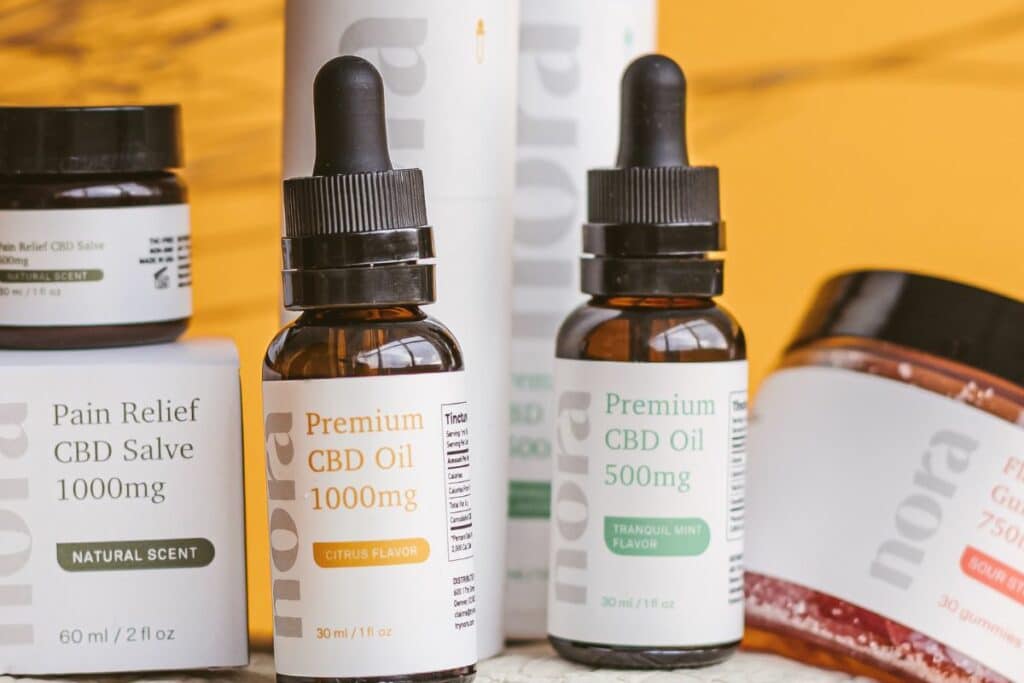
Delta-8 THC
Delta-8-tetrahydrocannabinol (Delta-8 THC) is another cannabinoid found in the Cannabis sativa plant, albeit in much smaller concentrations compared to CBD and Delta-9 THC (the primary psychoactive component in marijuana). Due to its rarity, Delta-8 THC is often synthesized from cannabidiol (CBD) through a chemical conversion process.
Delta-8 THC has psychoactive effects, albeit milder than its close relative, Delta-9 THC. Users report experiencing a “clear-headed” high, with less intense symptoms such as anxiety or paranoia. This characteristic has led to an increase in Delta-8 THC’s popularity, especially among consumers looking for a milder experience than traditional marijuana.
Despite its prevalence, the legality of Delta-8 THC is a subject of debate in the United States. While the chemical structure of Delta-8 THC is indeed different from Delta-9 THC, its classification under the 2018 Farm Bill is ambiguous. As a result, the legality of Delta-8 THC products varies, with some states banning or restricting their sale and possession.
In summary, CBD and Delta-8 THC are both cannabinoids found in the Cannabis sativa plant. While CBD is non-intoxicating and boasts potential therapeutic benefits, Delta-8 THC offers milder psychoactive effects compared to its better-known relative, Delta-9 THC. The legality of these compounds is determined by their concentration and origin, with CBD products derived from hemp considered federally legal in the United States, whereas Delta-8 THC’s legality remains uncertain and varies between states.
Chemical Structures and Effects on the Body
CBD’s Chemical Structure and Effects
Cannabidiol (CBD) is a naturally occurring compound found in the cannabis plant. Its chemical structure consists of 21 carbon atoms, 30 hydrogen atoms, and 2 oxygen atoms, giving it the molecular formula C21H30O2 1. Unlike delta-9-tetrahydrocannabinol (THC), the main psychoactive compound in cannabis, CBD does not produce mind-altering effects. This is because CBD has a weak affinity for the cannabinoid type 1 (CB1) receptors in the endocannabinoid system 2.
CBD has been studied for its potential therapeutic effects in a variety of conditions, including pain, anxiety, and inflammation 3. These effects are thought to be mediated by CBD’s interactions with various non-cannabinoid receptors in the body, including the serotonin (5-HT) and vanilloid (TRPV) receptors 4. Additionally, CBD has been shown to inhibit the breakdown of anandamide, a naturally occurring endocannabinoid that plays a key role in modulating pain and inflammation, which may further contribute to its therapeutic benefits 5.
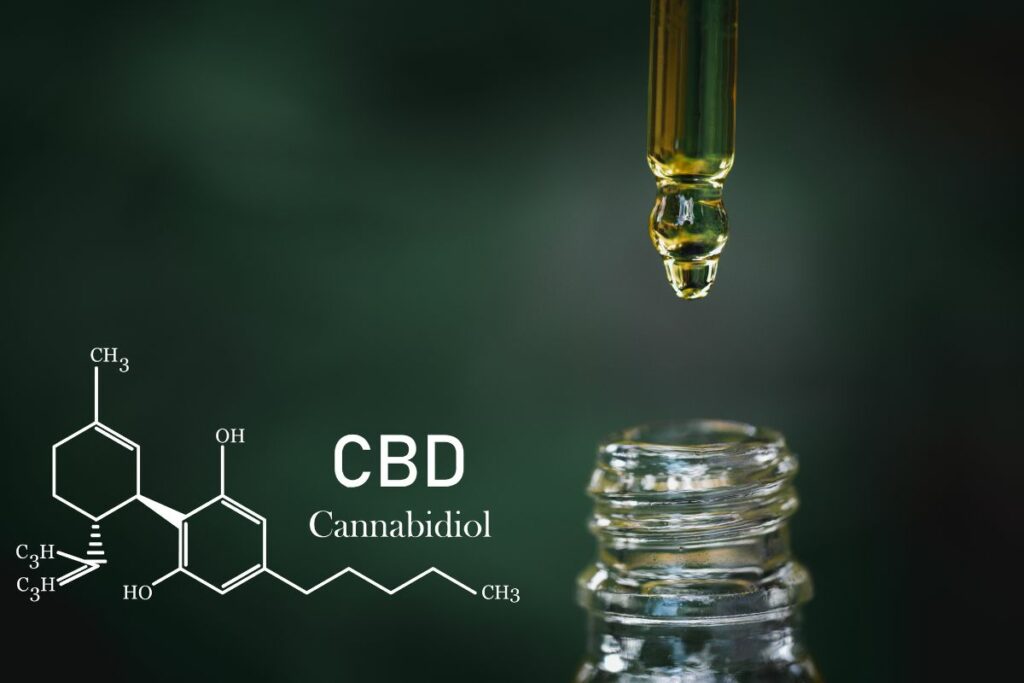
Delta-8’s Chemical Structure and Effects
Delta-8-tetrahydrocannabinol (Delta-8 THC) is another cannabinoid found in the cannabis plant, but it occurs in much smaller quantities than CBD or delta-9-THC. Delta-8 THC shares a similar molecular formula to delta-9-THC, but has a slightly different chemical structure. The main difference is the location of a double bond, which is shifted from the ninth carbon atom in delta-9-THC to the eighth carbon atom in delta-8-THC 6. This subtle structural change leads to different interactions with the CB1 receptors in the endocannabinoid system 7.
Delta-8 THC exhibits psychoactive effects, albeit less intense than those produced by delta-9-THC 8. While research on delta-8 THC is limited compared to CBD and delta-9-THC, it has been suggested that delta-8 THC may have potential therapeutic benefits, including antiemetic, anxiolytic, appetite-stimulating, and analgesic effects 9. These effects are likely mediated through its interactions with the CB1 receptors, as well as other non-cannabinoid receptors in the body.
Legal Status and Regulation
The legal status and regulation of cannabidiol (CBD) and delta-8-tetrahydrocannabinol (delta-8-THC) differ at the federal level and vary across states. CBD, derived from hemp, is legal under the 2018 Farm Bill as long as it contains less than 0.3% delta-9-tetrahydrocannabinol (delta-9-THC). However, the regulation of CBD products falls under the jurisdiction of the FDA, which requires adherence to specific labeling and manufacturing guidelines.
Delta-8-THC, on the other hand, exists in a legal gray area. While it is a psychoactive compound like delta-9-THC found in marijuana, it can be derived from hemp, theoretically making it legal under the 2018 Farm Bill. However, the conversion of CBD to delta-8-THC raises questions of legality, as it might be in violation of federal law.
State regulations differ with some allowing, restricting, or banning delta-8-THC products altogether. As the popularity of delta-8-THC increases, public interest in the compound has grown in states that restrict delta-9-THC use. The inconsistent state laws and lack of clear federal guidance have created confusion and concerns about appropriate regulation in the market.
The Controlled Substances Act (CSA) classifies delta-9-THC as a Schedule I substance, but its position on delta-8-THC is unclear. This ambiguity results in varying interpretations of the legality of delta-8-THC, with some claiming it is not a Schedule I substance since it is derived from hemp.
In conclusion, the legal status and regulation of CBD and delta-8-THC are complex and evolving. Differences in federal and state laws, as well as ambiguities in the interpretation of regulations, have created a challenging landscape for consumers, manufacturers, and regulators.
Psychoactive Effects
Delta-8 THC and CBD are both cannabinoids found in the cannabis plant, but they differ significantly in their psychoactive effects. Delta-8 is known to have a psychoactive effect, albeit less potent than its more famous counterpart, Delta-9 THC. On the other hand, CBD is not intoxicating and lacks the psychoactive effects typically associated with THC.
When consumed, Delta-8 THC may induce a mild euphoria and sense of relaxation. It is often described as providing a “functional high” without the confusion or dizziness that some individuals might experience with Delta-9 THC. This makes it appealing to those looking for the therapeutic benefits of THC without the potentially overwhelming psychoactive effects. Meanwhile, CBD is also known for promoting relaxation and soothing anxiety, but without causing a high or intoxication.
In terms of intoxication, Delta-8 THC is certainly less potent than Delta-9 THC. Users of Delta-8 might experience fewer side effects such as hallucinations or severe confusion. This reduced potency offers a gentler, more controlled experience that can be particularly beneficial for individuals who are sensitive to the effects of Delta-9 THC or are new to cannabis consumption.
While both Delta-8 THC and CBD can provide a sense of relaxation, their subjective effects may differ. Some users may prefer the subtle high of Delta-8, which still allows for mental clarity and focus. Meanwhile, those seeking solely the calming and anxiety-reducing properties of cannabis might opt for CBD, which does not produce any psychoactive effects.
In conclusion, Delta-8 THC and CBD are two cannabinoids with distinct psychoactive properties. Delta-8 provides a milder, more controlled high compared to Delta-9 THC, while CBD offers relaxation without intoxication. The choice between these compounds will ultimately depend on the individual’s desired effects and personal preferences.
Side Effects and Safety
When comparing CBD and Delta-8 THC, it is essential to consider their respective side effects and safety profiles. CBD is generally well-tolerated and has relatively mild side effects, such as fatigue, drowsiness, and dry mouth 1. It is non-psychoactive, meaning it does not produce the “high” associated with Delta-9 THC, the primary psychoactive compound in cannabis 2.
Delta-8 THC, on the other hand, is a less potent psychoactive cannabinoid than Delta-9 THC 3. Some users report experiencing fewer and less severe adverse side effects, such as nausea, vomiting, and tremors, with Delta-8 THC compared to Delta-9 THC 4. However, it’s essential to note that the overall safety of Delta-8 THC products remains unclear, as limited research is available concerning their potential adverse effects on humans.
Regarding potency, Delta-8 THC does produce a mild to moderate “high,” but anecdotal reports suggest that it is less intense than Delta-9 THC 5. This reduced potency may make Delta-8 THC a potentially safer alternative for individuals who experience negative effects from traditional cannabis products or those seeking a milder psychoactive experience.
Despite the potential advantages of Delta-8 THC over Delta-9 THC in terms of side effects and potency, it is crucial to approach Delta-8 THC products with caution. Due to the limited research and lack of regulatory oversight, the quality and safety of these products can vary significantly. Cases of adverse events, such as nausea, loss of consciousness, and tremors, have been reported by some Delta-8 THC users 6.
In conclusion, while CBD appears to have a favorable safety profile with mild side effects, the safety and side effects of Delta-8 THC remain largely unexplored. Further research on Delta-8 THC’s side effects, safety, and potential therapeutic applications is necessary to provide a comprehensive understanding of this compound’s benefits and risks.
Potential Benefits and Uses
Both CBD and Delta-8 THC have gained attention for their potential health benefits. While they both derive from the cannabis plant, their properties and effects differ.
CBD, or cannabidiol, is a non-psychoactive compound found in hemp and marijuana plants. It has been praised for its potential therapeutic uses, including anti-inflammatory properties and pain relief. CBD may be particularly useful for people looking for the health benefits of cannabis without the intoxicating effects. It is also routinely used as a dietary supplement and can be found in various products such as oils, tinctures, and edibles.
Delta-8 THC, on the other hand, is a psychoactive compound, but its effects are considered milder compared to its more popular sibling, Delta-9 THC. Users have reported that Delta-8 produces a more clear-headed high, making it ideal for those who want to avoid anxiety or paranoia often associated with marijuana use. Some studies have even suggested that Delta-8 could have a more balanced effect when combined with CBD.
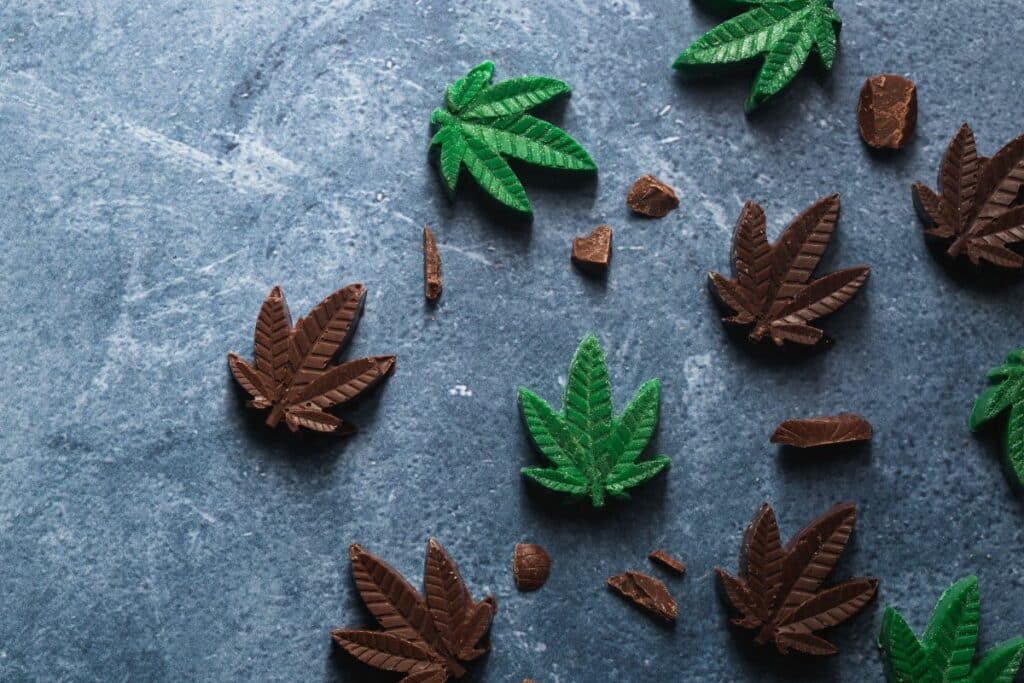
Delta-8 THC also offers potential benefits, such as mood enhancement and increased appetite. Since it is derived from hemp and has a lower psychoactive effect than traditional marijuana, it is becoming more popular among consumers looking for an alternative option. Additionally, Delta-8 THC may also provide pain relief and exhibit anti-inflammatory properties, similar to CBD.
In terms of uses, both CBD and Delta-8 THC can be incorporated into your daily routine. They are available in various forms such as oils, tinctures, edibles, and vapes. It is essential to consider the legal status of these compounds in your area to ensure that you’re using them responsibly and within the guidelines set by authorities.
While both CBD and Delta-8 THC show promise for various potential health benefits, more research is needed to understand their true potential and associated risks. As with any supplement, it is always wise to consult with a healthcare professional before incorporating them into your regimen.
Consumption Methods and Products
When comparing CBD and Delta 8, it is important to consider the various consumption methods and products available. Both cannabinoids can be found in a range of forms, from gummies to oil, allowing consumers to choose the most suitable option for their needs.
Gummies are a popular choice for both CBD and Delta 8, as they offer a discreet and taste-friendly way to consume cannabinoids. They are often infused with either full-spectrum CBD, broad-spectrum CBD, or CBD isolate, which refers to the type of CBD used in the product. Full-spectrum CBD contains all of the naturally occurring cannabinoids from the cannabis sativa plant, broad-spectrum removes THC, and isolate is pure CBD without other cannabinoids. Delta 8 gummies contain the Delta 8 in an edible format and are available in a variety of flavors.
Oil is another common product for both CBD and Delta 8. CBD oil can be taken sublingually (under the tongue) or added to food and drinks. Similarly, Delta 8 oil can be consumed directly or mixed into recipes. The primary difference lies in their effects: CBD oil is non-psychoactive and known for its potential therapeutic benefits, while Delta 8 oil offers a milder high compared to traditional cannabis products containing Delta 9-THC.
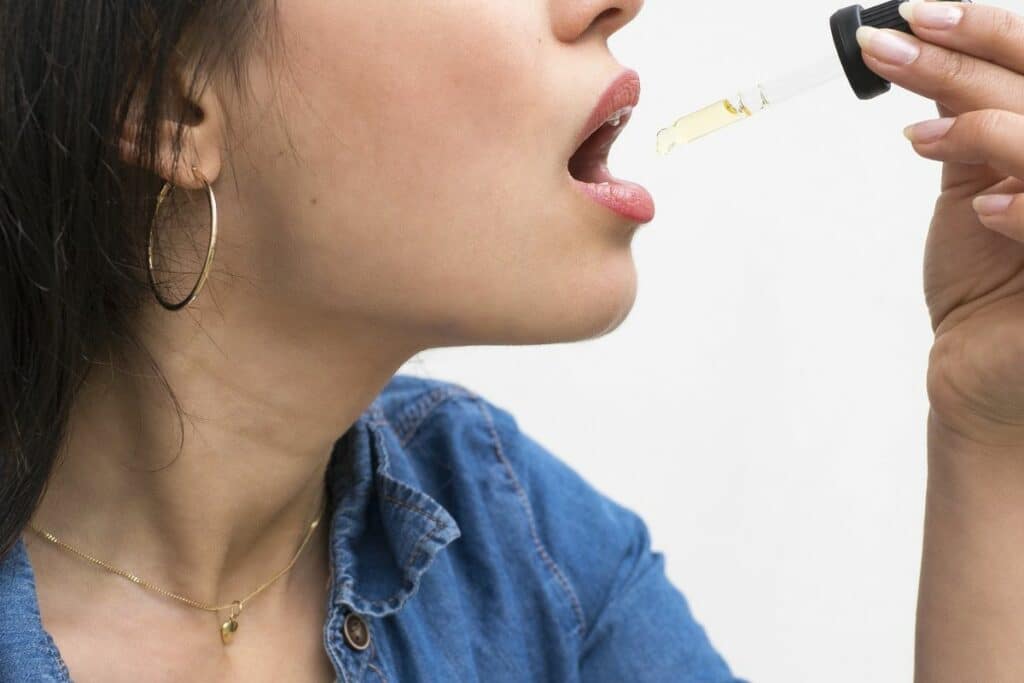
When it comes to inhalation, both CBD and Delta 8 can be found in vapes. Vaping is a popular option for users who are looking for a fast-acting method, as the cannabinoids are absorbed directly into the bloodstream through the lungs. There are various types of CBD vapes, featuring full-spectrum, broad-spectrum, or CBD isolate. Delta 8 vapes come in a variety of flavors and are ideal for users seeking a mild high without the potential side effects of Delta 9-THC.
It is worth noting that weed, or the Cannabis sativa plant, typically contains low levels of both CBD and Delta 8-THC. However, the levels of these cannabinoids can be manipulated through selective breeding, resulting in strains high in CBD or Delta 8-THC. Some users prefer consuming cannabis plants in their natural form, while others opt for processed cannabis products containing varying concentrations of CBD or Delta 8.
In conclusion, there are numerous consumption methods and products available for both CBD and Delta 8. Consumers can choose from gummies, oils, vapes, and even weed, depending on their desired effects and personal preferences.
Role in Medical Treatments
Delta-8 THC and CBD have shown potential in addressing various medical conditions and symptoms, including anxiety, appetite, nausea, and more. They interact with the endocannabinoid system in the body, creating different effects that can be beneficial for medical treatments.
Anxiety is a common condition affecting millions of people worldwide. Delta-8 THC has been reported to produce calming effects, potentially making it effective in relieving anxiety. On the other hand, CBD is well-known for its anxiolytic properties, as it acts on serotonin receptors and modulates neurological processes to alleviate anxiety symptoms.
Appetite stimulation is another area where these cannabinoids may provide benefits. Delta-8 THC, similar to its close relative Delta-9 THC, has been reported to stimulate appetite in some cases. This characteristic makes it a potential candidate for treating conditions where appetite loss is a concern, such as HIV/AIDS and cancer. In contrast, CBD’s effects on appetite are less pronounced, with some studies suggesting it could contribute to weight loss by promoting fat metabolism.
Nausea and vomiting associated with medical treatments, such as chemotherapy, can severely impact the quality of life for patients. Both Delta-8 THC and CBD have demonstrated potential in alleviating these symptoms. Delta-8 THC has been reported to be effective in reducing vomiting and is undergoing research to better understand its efficacy. CBD also possesses antiemetic properties, making it another option for patients seeking relief from nausea and vomiting.
Although research on Delta-8 THC and CBD is still relatively limited compared to Delta-9 THC, early findings indicate that they may have a role in medical treatments. Determining the most effective dose, product, and method of administration can vary among individuals, and further research is needed to establish standardized guidelines for their therapeutic use. However, their potential merit in addressing symptoms such as anxiety, appetite, nausea, and more indicates a promising future for these cannabinoids in the realm of medical treatments.
Common Misconceptions and Confusions
When discussing cannabidiol (CBD) and delta-8 tetrahydrocannabinol (delta-8 THC), it’s crucial to clarify common misconceptions and confusions that often cloud the conversation. Both compounds are found in cannabis plants, but they have different effects and legal statuses.
One of the most common misconceptions about CBD is regarding its psychoactive properties. Unlike delta-9 THC, which is known for its intoxicating effects, CBD does not produce a "high". Delta-8 THC, on the other hand, is less potent than delta-9 THC but does have mild psychoactive effects.
Another misconception is the role of tetrahydrocannabinolic acid (THCa) in cannabis products. THCa is the non-psychoactive precursor to THC, and it does not produce effects like delta-9 or delta-8 THC unless it is heated. THCa is often found in raw cannabis plants and, as a result, does not contribute to the “high” associated with THC.
When discussing the similarities and differences between CBD and delta-8 THC, it is essential to mention their interaction with the endocannabinoid system (ECS). The ECS plays a crucial role in maintaining homeostasis, which is the body’s ability to maintain stability and balance within the nervous system. Both CBD and delta-8 THC indirectly interact with the ECS but through different pathways.
In summary, understanding the differences between CBD, delta-8 THC, and other related compounds is vital to making informed decisions about cannabis products. By knowing their potential effects, interactions with the ECS, and the differences in their chemical structures, consumers can make better choices that align with their preferences and needs.
Frequently Asked Questions
What are the main differences between CBD and Delta-8?
CBD (cannabidiol) and Delta-8-THC (delta-8-tetrahydrocannabinol) are both compounds found in the cannabis plant. CBD is non-psychoactive and known for its health benefits, such as relieving pain, inflammation, and anxiety. Delta-8, on the other hand, is a psychoactive compound with effects similar to those of Delta-9-THC, the primary psychoactive component in marijuana. However, Delta-8 is considered to have a milder, less intense high compared to Delta-9-THC.
Is Delta-8 or CBD better for anxiety relief?
Both CBD and Delta-8 are reported to have anxiety-relieving properties. However, as CBD is non-psychoactive, it is more commonly recommended for those looking to relieve anxiety without the psychoactive effects associated with THC compounds like Delta-8. It is important to note that everyone’s experience might be different, and it is recommended to consult with a medical professional before trying either CBD or Delta-8 for anxiety relief.
What are the side effects of Delta-8 compared to CBD?
Delta-8 can cause mild psychoactive effects, like a “high,” while CBD does not have such effects. Potential side effects of Delta-8 include dizziness, fatigue, increased heart rate, and dry mouth, while CBD generally has fewer side effects, which may include dry mouth, diarrhea, and drowsiness. However, it is essential to understand that individual reactions to each substance may vary, and these side effects may not be experienced by everyone.
Does Delta-8 or CBD provide more energy?
CBD is known for its relaxing effects and may not typically provide an energy boost. On the other hand, Delta-8 is reported to have uplifting effects, assisting users in staying focused and energetic. However, the energy levels and overall experiences vary between individuals. It is crucial to test either substance within one’s comfort zone to determine their personal reaction.
Are both CBD and Delta-8 legal?
The legality of both CBD and Delta-8 depends on the country or state you reside in. In the United States, CBD derived from hemp (containing less than 0.3% THC) is legal at the federal level, but individual state laws may differ. Delta-8 is in a legal gray area, as it is technically legal under the 2018 Farm Bill; however, the DEA deems any THC isomers derived from hemp as controlled substances. It is essential to research the specific laws in your jurisdiction to determine the legality of these compounds.
Which is safer to use: Delta-8 or CBD?
Both CBD and Delta-8 are generally considered safe when used responsibly and sourced from reputable providers. However, due to CBD’s non-psychoactive nature, it is considered a safer option for those who do not wish to experience the psychoactive effects of THC. It is always recommended to consult with a healthcare professional before trying either substance, especially if you are on any medication or have pre-existing health conditions.
Footnotes
- https://pubchem.ncbi.nlm.nih.gov/compound/Cannabidiol ↩ ↩2
- https://www.cell.com/trends/pharmacological-sciences/abstract/S0165-6147(18)30005-0 ↩ ↩2
- https://www.nature.com/articles/s41598-020-77806-1 ↩ ↩2
- https://www.frontiersin.org/articles/10.3389/fphar.2018.01259/full ↩ ↩2
- https://www.ncbi.nlm.nih.gov/pmc/articles/PMC4722637/ ↩ ↩2
- https://onlinelibrary.wiley.com/doi/abs/10.1111/add.16142 ↩ ↩2
- https://link.springer.com/article/10.1007/s40429-022-00456-1 ↩
- https://ajph.aphapublications.org/doi/full/10.2105/AJPH.2021.306499 ↩
- https://www.liebertpub.com/doi/abs/10.1089/can.2021.0124 ↩
- Analytical and medico‐legal problems linked to the presence of delta ‐ 8 ‐tetrahydrocannabinol ( delta ‐ 8 ‐THC): Results from urine drug testing in Sweden
- Delta ‐ 8 tetrahydrocannabinol: a scoping review and commentary
- Consumer experiences with delta – 8 -THC: medical use, pharmaceutical substitution, and comparisons with delta -9-THC


